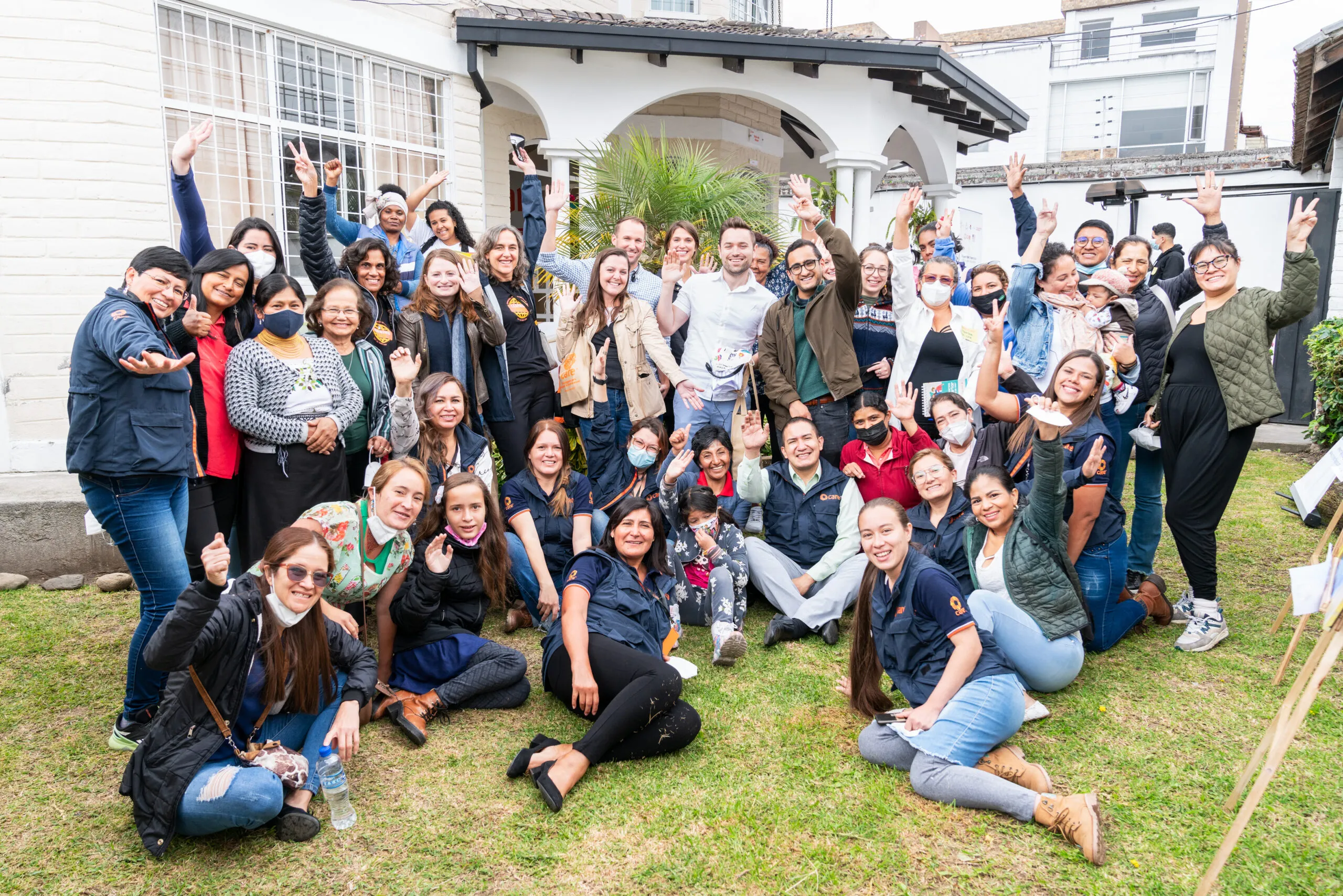Washington, DC (August 24th, 2022) –A bipartisan and bicameral delegation of Congressional staffers traveled to Ecuador with CARE to see the impacts of U.S. foreign investments firsthand. The delegation met with Ecuadorian government officials, civil society actors, and program participants to discuss how violence and poverty undermine development throughout Latin America and force people to flee their communities, as well as the role that global investments in rights-based, community-led emergency response and development can play in combatting poverty.
Ecuador presents a complex and dynamic context for learning about human mobility in the region, with as many as 1.2 million Venezuelans arriving and 500,000 settling in the country since 2015. The majority are women and girls, who often bear the brunt of challenges present in forced migration, according to CARE’s research. However, during the Learning Tour to Ecuador, delegates witnessed forcibly displaced and under-resourced women rising to become essential leaders in their community.
Throughout the three and a half-day trip, the delegation gained an understanding of the ways in which the traditionally siloed categories of humanitarian and development aid are insufficient to respond to protracted crises, such as human mobility throughout Latin America, and explored the ways that comprehensive and integrated services are effective at building thriving communities in the region. In discussions with Venezuelan women who have taken on the responsibility to educate new arrivals to the country — whether they are from Venezuela, Colombia, Haiti, or anywhere else — about how to access their rights in Ecuador, the delegation explored how rights-based approaches to humanitarian response are essential to meeting the need. Through meetings with government officials and NGO experts as well as local community health workers, the delegation learned about the interconnectivity of the economic recession sparked by the COVID-19 pandemic and the following food shortage and livelihood crisis affecting both local Ecuadorians and forcibly displaced peoples. And throughout the Learning Tour, the delegation witnessed the resiliency of women building their own wealth and cohesion between host and migrant neighbors through community banking systems, from Village Savings and Loan Associations in Ibarra to community banking for agribusiness in Tulcán.
During the Learning Tour, the delegation met with partner organizations including HIAS, World Vision, ESQUEL, and ADRA and visited U.S. government-funded programs in Quito, Ibarra, Cayambe, and Tulcán. The delegation also attended a reception hosted by CARE and the U.S. Mission to Ecuador and attended meetings with the U.S. Ambassador to Ecuador and the Foreign Minister of Ecuador to learn about the humanitarian and development priorities in Ecuador.
Participants in CARE’s August 2022 Learning Tour to Ecuador included:
- Ausan Al-Eryani, Legislative Assistant, Senator Tim Kaine (D-VA)
- Casey Davison, Legislative Assistant, Rep. Katherine Clark (D-MA)
- Claire Figel, Senior Policy Analyst, Senate Committee on Foreign Relations (Minority)
- Julia Greensfelder, Legislative Analyst/Policy Analyst, Senate Committee on Foreign Relations (Majority)
- Sarah Markley, Professional Staff Member, House Foreign Affairs Committee (Minority)
- Ray Salazar, Senior Adviser, Majority Leader Steny Hoyer (D-MD)
- Katherine Thomas, Senior Professional Staff Member, Senate Committee on Agriculture, Nutrition, and Forestry (Minority)
For more information please contact:
Kalei Talwar
Deputy Director, CARE Learning Tours
kalei.talwar@care.org

